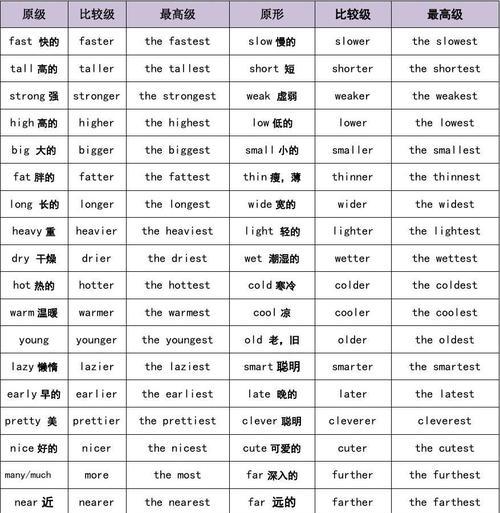在英语语法学习中,一些词语需要与比较级连用以准确表达事物之间的差异。例如,“更多的”用于比较数量,“更少的”用于比较数量,“更高的”和“更低的”用于比较高低,“更好的”用于比较质量。这些词语通常与“than”连用。

更多的
用于比较两者之间数量多少时使用,常与“than”连用,如:
- She has more books than I do.(她有比我更多的书。)
- My sister has more friends than I do.(我妹妹有比我更多的朋友。)
更少的
用于比较两者之间数量少多时使用,常与“than”连用,如:
- John eats less than his brother.(John吃的比他兄弟少。)
- My sister spends less money than I do.(我妹妹比我花费的钱少。)
更高的
用于比较两者之间的高低时使用,常与“than”连用,如:
- The mountain is higher than the hill.(这座山比这座山丘高。)
- My father's salary is higher than mine.(我父亲的工资比我高。)
更低的
用于比较两者之间的高低时使用,常与“than”连用,如:
- The temperature today is lower than yesterday.(今天的温度比昨天低。)
- The cost of living in this city is lower than in New York.(这个城市的生活成本比纽约低。)
更好的
用于比较两者之间的质量好坏时使用,常与“than”连用,如:
- This restaurant's food is better than that one.(这家餐厅的食物比那家好。)
- My new car is better than my old one.(我的新车比旧车好。)

